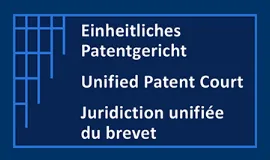Italy, France, Germany agree on competences central division seats Unified Patent Court
June 10, 2023
Italy, France and Germany have agreed on and proposed a division of the competences that were originally designated to London, between the three seats of the UPC central division in Milan, Paris and Munich. Milan could start taking cases around July next year.

Italy, France and Germany presented the ‘outcome of their trilateral discussions regarding a permanent solution on Article 7 (2) UPCA and Annex II of the Agreement in which the reference to London has become obsolete after Brexit’ during a meeting of the Administrative Committee on 2 June 2023.
According to the UPC, ‘Member States will meet again on 26 June with the view to taking a decision. Such a decision based on Article 87 (2) UPCA could already be effective after 12 months. Provisionally, until a final solution is implemented, the allocation of cases to the Paris seat and Munich section is governed by the decision of the Presidium of 8 May 2023.’
Additional technically qualified judges appointed
The UPC also announced that the member states, ‘on the basis of the opinion of the Advisory Committee, agreed unanimously on a list of most suitable candidates for appointment as Technically Qualified Judge (TQJ). Altogether around 20 additional TQJ will be offered a position as a part time TQJ. Also, around two dozen Legally Qualified Judges (LQJ) have been selected to further build the "reserve list" of the UPC. Additions in both areas will be considered later this year on an opinion by the Advisory Committee. The measures are intended to reinforce the capacity of the Court already from the early days of its work.’
You may also like














law sniffer
"Organizations in Italy had earlier qualified this division as ‘unacceptable’, but apparently Milan and Italy have given in ...": I was sure that a populist, nationalist and EU-sceptic government would give in in favour of the other "hated" nations. Populism is all bark and no bite, words and no deeds, and apparently people are happy with this ... Sorry for this digression that has very little to do with UPC or patents
Adam Brown
Both decisions don't have any legal basis. Upca 87(2) does not allow the creation of EU Law. The European Commission should intervene.
Do we need the UPC?ae
That a reference to London has become obsolete is one thing, That France, Germany and Italy have agreed on a distribution of tasks is another one. What about the legality of the decision of the presidium provisionally allocating the duties meant for London to Paris and Munich. Furthermore, Art 87(2) UPCA has never been designed in order to overcome the problems of Brexit. This is the more so since the UPCA does not contain an exit clause, contrary to the EPC
law sniffer
it seems to me that here someone is only hoping that the UPC proves to be the original sin and the origin of all evil, no matter for whatever reason or technicality, and, I suspect, as an indirect proof of the incapacity and illegality of the EPO and its higher bodies, a sort of war, under a different guise, conducted by some examiners against their employer: are these the same ones (a minority!) who should rather think first about their work and professionality which is, as seen as from the other side, not always very "lawful"?